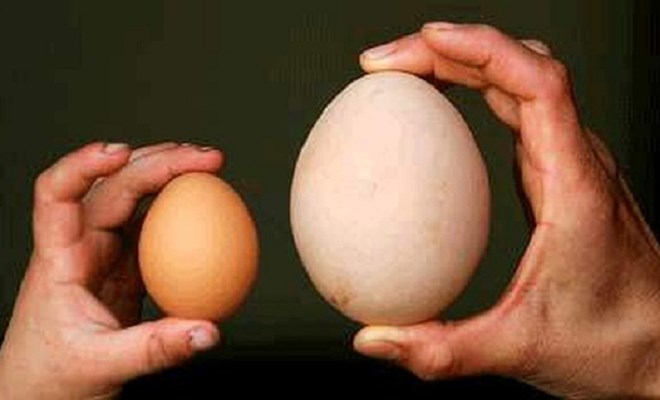Is it true that eating goose eggs makes babies smarter?
According to nutrition experts, there is currently no research that proves eating goose eggs will make babies smarter. The intelligence of a baby depends on various factors such as genetic inheritance, environmental education, and the child’s own efforts.
In fact, goose eggs are larger than duck eggs and chicken eggs, so many people believe that if a pregnant mother eats goose eggs, the baby will be healthy, chubby, and well-fed. However, in reality, goose eggs are not tasty and not popular like chicken eggs, duck eggs, or quail eggs, so very few people eat them, mostly pregnant women.

Moreover, if pregnant women want to have healthy and intellectually developing babies, they should consume sufficient nutrients, among which chicken eggs are one of the valuable foods. Besides, in chicken eggs, there are reasonable proportions of proteins, lipids, carbohydrates, vitamins, and minerals that are very good for nourishing the body. Therefore, during pregnancy, expectant mothers only need to supplement chicken eggs for sufficient nutrition.
In addition, pregnant women should consume all four groups of nutrients, including carbohydrates, protein, fat, vitamins, and minerals such as iron, folic acid, Omega-3, calcium-rich foods, and trace elements such as magnesium and zinc, various legumes, cereals, etc. so that the baby can develop both physically and intellectually. At the same time, in the last three months of pregnancy, pregnant women should avoid eating too much salt as it affects blood pressure during pregnancy. Regular health check-ups every six months help detect any abnormalities in the body for timely adjustment.

Notes when pregnant women eat goose eggs
Goose eggs contain a high amount of lipids and cholesterol, so pregnant women should not eat too much to avoid overweight, which increases the risk of chronic diseases such as diabetes, cardiovascular diseases, and high blood pressure, which in turn negatively affects the development of the fetus.
On average, a pregnant woman should not eat goose eggs more than 3 times a week. Mothers should also pay attention to diversify other nutrients for the well-being of both mother and baby, not just a fixed source of nutrition.
In addition, goose eggs are not commonly available compared to chicken eggs or duck eggs, as geese are usually raised for their meat. Therefore, mothers do not need to go to great lengths to find this type of egg. Pregnant women should supplement their diet with other nutrients according to the season, along with regular chicken eggs and duck eggs.
During the entire pregnancy, mothers need to pay special attention to cooking food thoroughly and boiling water to avoid eating leftovers or bacteria that can enter the body and affect the health of both the mother and the baby.





































